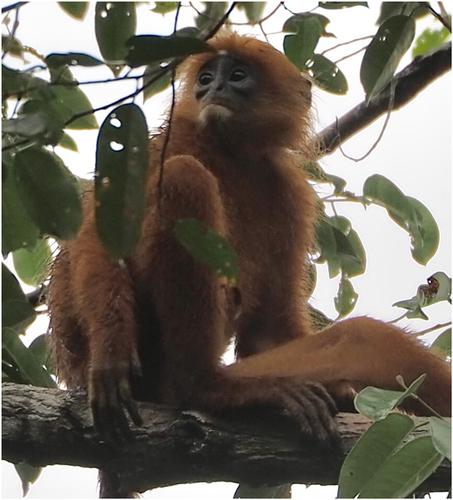当前位置:
X-MOL 学术
›
Am. J. Primatol.
›
论文详情
Our official English website, www.x-mol.net, welcomes your feedback! (Note: you will need to create a separate account there.)
Is 2020 the year when primatologists should cancel fieldwork? A reply.
American Journal of Primatology ( IF 2.4 ) Pub Date : 2020-07-13 , DOI: 10.1002/ajp.23173 Chet Trivedy 1
American Journal of Primatology ( IF 2.4 ) Pub Date : 2020-07-13 , DOI: 10.1002/ajp.23173 Chet Trivedy 1
Affiliation

|
The aim of this article is to explore the impact of coronavirus disease (COVID‐19) pandemic on primate‐related conservation work. The withdrawal of primatologists and conservation staff from field research can lead to a number of detrimental effects not just on conservation but also on local communities in low‐ and middle‐income countries. Inequalities in access to health and financial insecurities may be drivers for the illegal wildlife trade and the lack of tourism and research activity may allow poachers to work with greater ease. The paper also looks at how conservation organizations and research bodies should modify their field protocols by developing robust occupational health policies that will not only make field work safer but also support local staff as they are likely to face the greatest threats to their physical health, psychological health, and economic loss from COVID‐19. By adopting a One Health approach that considers the complex interactions between human and primate health, researchers will be able to find new ways of working not only to protect primates but understand how they adapt to the COVID‐19 pandemic.
中文翻译:

2020年灵长类动物学家应该取消实地考察吗?回答。
本文的目的是探讨冠状病毒病(COVID-19)大流行对灵长类动物相关保护工作的影响。灵长类动物学家和保护人员退出实地研究可能不仅对保护工作而且对低收入和中等收入国家的当地社区造成许多不利影响。获得健康的不平等和经济上的不安全感可能是非法野生动物贸易的驱动因素,而旅游业和研究活动的缺乏可能会让偷猎者更加轻松地进行工作。该文件还探讨了保护组织和研究机构应如何通过制定强有力的职业健康政策来修改其现场协议,这些政策不仅可以使现场工作更安全,而且可以为当地工作人员提供支持,因为他们可能面临身体健康、心理健康的最大威胁。 COVID-19 造成的健康和经济损失。通过采用考虑人类和灵长类动物健康之间复杂相互作用的 One Health 方法,研究人员将能够找到新的工作方法,不仅可以保护灵长类动物,还可以了解它们如何适应 COVID-19 大流行。
更新日期:2020-07-24
中文翻译:

2020年灵长类动物学家应该取消实地考察吗?回答。
本文的目的是探讨冠状病毒病(COVID-19)大流行对灵长类动物相关保护工作的影响。灵长类动物学家和保护人员退出实地研究可能不仅对保护工作而且对低收入和中等收入国家的当地社区造成许多不利影响。获得健康的不平等和经济上的不安全感可能是非法野生动物贸易的驱动因素,而旅游业和研究活动的缺乏可能会让偷猎者更加轻松地进行工作。该文件还探讨了保护组织和研究机构应如何通过制定强有力的职业健康政策来修改其现场协议,这些政策不仅可以使现场工作更安全,而且可以为当地工作人员提供支持,因为他们可能面临身体健康、心理健康的最大威胁。 COVID-19 造成的健康和经济损失。通过采用考虑人类和灵长类动物健康之间复杂相互作用的 One Health 方法,研究人员将能够找到新的工作方法,不仅可以保护灵长类动物,还可以了解它们如何适应 COVID-19 大流行。



























 京公网安备 11010802027423号
京公网安备 11010802027423号